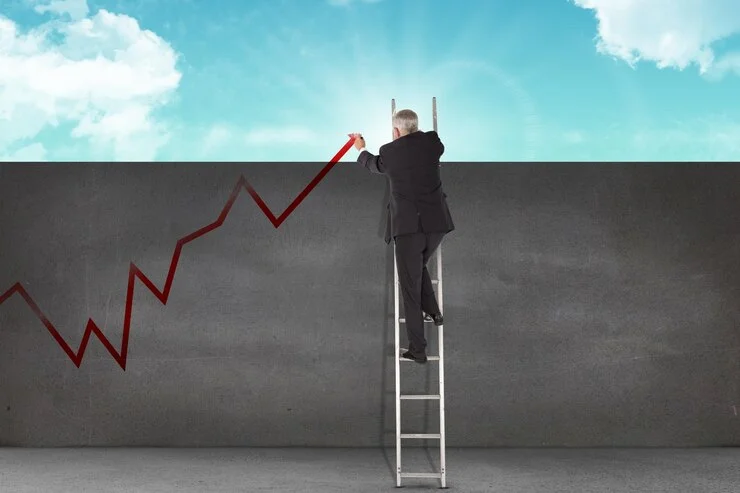Fear of Failure: Turning Obstacles into Opportunities
Fear of failure, also known as atychiphobia, is an irrational and persistent fear of failing. It can stem from various sources, sometimes triggered by specific situations or related to other mental health conditions like anxiety or depression. Perfectionists, in particular, may grapple with this fear due to their high expectations and the nagging worry that they won’t meet unrealistically high standards. The emotional and behavioral symptoms of this fear include anxiety, avoidance, feelings of helplessness, and a sense of powerlessness. Physically, it may manifest as rapid heart rate, chest tightness, trembling, and digestive issues. Interestingly, some individuals may even avoid trying altogether to prevent potential pain or disappointment. While not a distinct condition in the Diagnostic and Statistical Manual of Mental Disorders, the fear of failure can significantly impact our lives. In this article, we’ll explore the signs, causes, treatments, and strategies to prevent this fear from holding us back.
Personal Experience
I cried the first day I quit my job and went to my side business full-time. I had a safe job. I had been promoted recently. I was going to be promoted again.
And my side business was shaky. Who knows when clients could leave? Who knows if I’d have to fire people? When I quit my job my boss said to me, “Don’t forget two things. Once you leave here nobody will return your calls. And two, I never once have rehired anyone back.”
First day of new job: my biggest client left. I went for pizza. While staring at the counter with all the different types of slices my eyes started to tear. My friend next to me turned to me and said, “Are you crying?” And I said, “No.” We had pizza and went back to work.
I had made a big mistake. I was going to fail. I was going to go broke. I was going to have to fire people. I was going to have to beg for my old job back and they would either say NO or give me a worse job. My friends and family would laugh behind my back. I was scared to death. I think it took 15 years before I had a decent night’s sleep since then. I haven’t had a job since then. Part of the fear is the uncertainty. However, the benefits of uncertainty could be much greater financial and emotional rewards. I have some tricks for dealing with failure now. 19 years later.
A) DIVERSIFY
If one thing starts to not work out, I focus on something else that is working that gives me pleasure. I know eventually I will have to focus on the things not working out. But if I first focus on something that gives me pleasure, at least I will be in a better mindset and my brain will have done some processing in the background.
Right now I have a couple of different businesses that I work on. A couple of investments that I help out with. And I write and podcast and do other things. Oh, and I have a children’s book coming out. The children’s book won’t make me rich. But gives me pleasure.
B) TRUST THE FORCE
Even when I write it, it feels stupid. But it works. One time I had a business that was failing. I knew if I put my all into it, it would either work out or I would meet enough people that something else good would happen.
People make either fear decisions or growth decisions. When something is not working out, it’s too easy to make fearful decisions. But that’s exactly when everything you do has to make a growth decision. Let’s say a business is not working out. Call a client and ask for advice. This helps solidify the relationship with the client. And it might give you a further idea of what you can do with your life.
In the middle of uncertainty, shed your light on any path that suddenly shows up that might be available to you.
C) WRITE TEN IDEAS A DAY
This is my go-to plan that has ALWAYS worked for me and saved my life so many times.
I write plans for myself: what books can I write, what businesses can I start? How can I improve my current business? And on and on. I write ideas every day. Most ideas are bad. That’s not the point. But this exercises the idea muscle. I can feel my brain sweat. When your brain is sweating, neural connections (or whatever) are forming. Things are happening that are making it easier for you to be creative.
I wrote it two years ago. Finally, a few weeks ago I showed the list to Chip Conley, the head of Hospitality for Airbnb. He liked the list. He asked me to speak at the Airbnb Open in LA this November 17–19. 5000 in the audience. Gwyneth Paltrow is speaking. BAM! I’m going.
Am I getting paid? No. Are they flying me out? No. But why would I say “no”? This is a growth decision. I will meet people, learn things, make connections, get MORE ideas. Maybe five years from now something that happens here will solve a problem I have. Based on a ten-item list I wrote two years ago. This is the way I create luck.
D) REDUCE EXPECTATIONS
One time I owned a piece of a business I thought would do huge. But it didn’t do huge. It was meandering along. And I was spending a lot of time on it. I kept thinking, “This is it! I’m going to make a ton of money!”
I didn’t. It looked like a loser. So I reduced expectations. I didn’t say, “I’m going to make a ton of money!” I said, “I’m going to make money!” And I found a buyer for my piece of the investment. I made a little bit of money. But the business ended up not working out. So I would have made zero. And with the money I made, I was able to put it in other investments and diversity.
Happiness = Reality / Expectations. I couldn’t change the reality (the business was going to fail). But I changed the expectations (I reduced the amount I hoped to make). This changed my behavior to come up with an easier solution. So I need to be happier. And relieved.
E) READ
I’m not a huge believer in self-help books. When I’m reading I get this temporary injection of, “This is amazing! I can do this!” and then I try to go out and make friends and influence people and then I forget how. The feeling wears off.
But that’s ok. If I’m afraid RIGHT NOW then sometimes I need to read stories of failure or fear to get that temporary boost. That feeling of “I can do this” even if I know it’s going to wear off in a while. Life is sad and hard. And books are both knowledge and escape. So why not use them?
F) PLUS, MINUS, EQUAL
When I start something new, I ask – who is my “plus”, “minus”, and “equal”. PLUS – someone to learn from. A real mentor or teacher or a virtual one (that I can read about or watch).
EQUAL – people to challenge me. Peers I can run ideas by. MINUS – people I can teach. I’ve switched careers several times and each time I was scared to death: computers to writing. Writing to TV. TV to running a business. Running a business to running a hedge fund. And on and on.
In each case, I learned the inner workings of an entirely new industry by always putting together my plus, minus, equal.
G) FEEL IT
I have a project I am about to launch. A new book. Two new books. A children’s book, “My Daddy Owns All of Outer Space”, and another book, “Plus, Minus, Equal” (see above point). I feel this in my chest. And I feel it in my brain. Sometimes it messes up the thoughts in my brain so I can’t think straight else I will be too afraid.
But that’s just it: ask: where in the body do I feel this fear. It sounds stupid. Or it sounds like “mindfulness”. But it helps me distance the fear from who I am. When I’m afraid I take fast breaths. Like on the days when I am being chased by lions in the savannah. But if I can feel the fear in my body, and confuse myself by taking big breaths, it can confuse the fear – distance myself from it, be aware of it in a new way, and watch it wither.
H) 40% MORE
I was talking to Jesse Itzler who wrote the book, “Living with SEAL”. He lived with an ex-Seal who trained him for 30 straight days. The book is great. Get it.
One thing he says: “Seal always told me, right when you think you can’t do anything more, you can do 40% more.” So if you are doing push-ups, for instance, and you do 100 and think you are going to collapse in exhaustion, it probably means you can do another 40.
By the way, I can’t do 100 push-ups. Maybe throughout the day. Like one at a time. Like I’ll eat a bite of a sandwich, do a pushup, and then maybe when I finish the sandwich I’ll do another one, and so on. That will add up to maybe 87 by the end of the day. But in business, when I think I’m stressed, it’s not like I want to get more stressed but I know I can handle 40% more. Which doesn’t mean getting more scared. It means making more phone calls coming up with new ideas or sending new emails. Do 40% more to come up with solutions to the problems I’m confronting rather than give up in fear.
I) FEAR OR GROWTH.
Again, every decision is either a fear decision or a growth decision. It’s ok to feel freer. It’s ok to wake up at 3 in the morning and pace the room thinking you’re about to do something scary that will fail.
But don’t make decisions then. Schedule a time, let’s say 3 in the afternoon when you will return to this decision. Say to yourself, it’s 3 in the morning, and I know I feel a lot of fear at this time, so I’m going to sleep and address this at 3 in the afternoon. At 3 in the afternoon, you are much more likely to make a growth decision. Feel the fear. But only make decisions where you can count the ways it’s a growth decision.
J) WRITE
Susan David wrote “Emotional Agility” and came on my podcast to talk about it. She told me this: A scientific study compared two groups of people.
Group A spent 20 minutes writing down all the things that scared them. Group B spent 20 minutes writing random things down. Like a shopping list. Then both groups were measured six months later on their levels of happiness and contentment.
It turns out that just doing the writing of fears ONE time in those six months was enough to cause greater levels of happiness among the people of Group A than Group B. I try to write every day. Just like I’m doing right now.
I include this graphic because a common fear I hear about is, “I’m too late!” for…whatever. Success, love, happiness, money, etc.
Here are some people who got over that fear.

